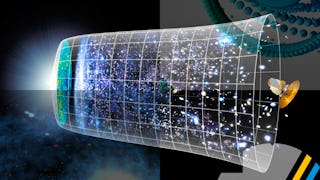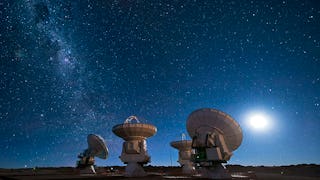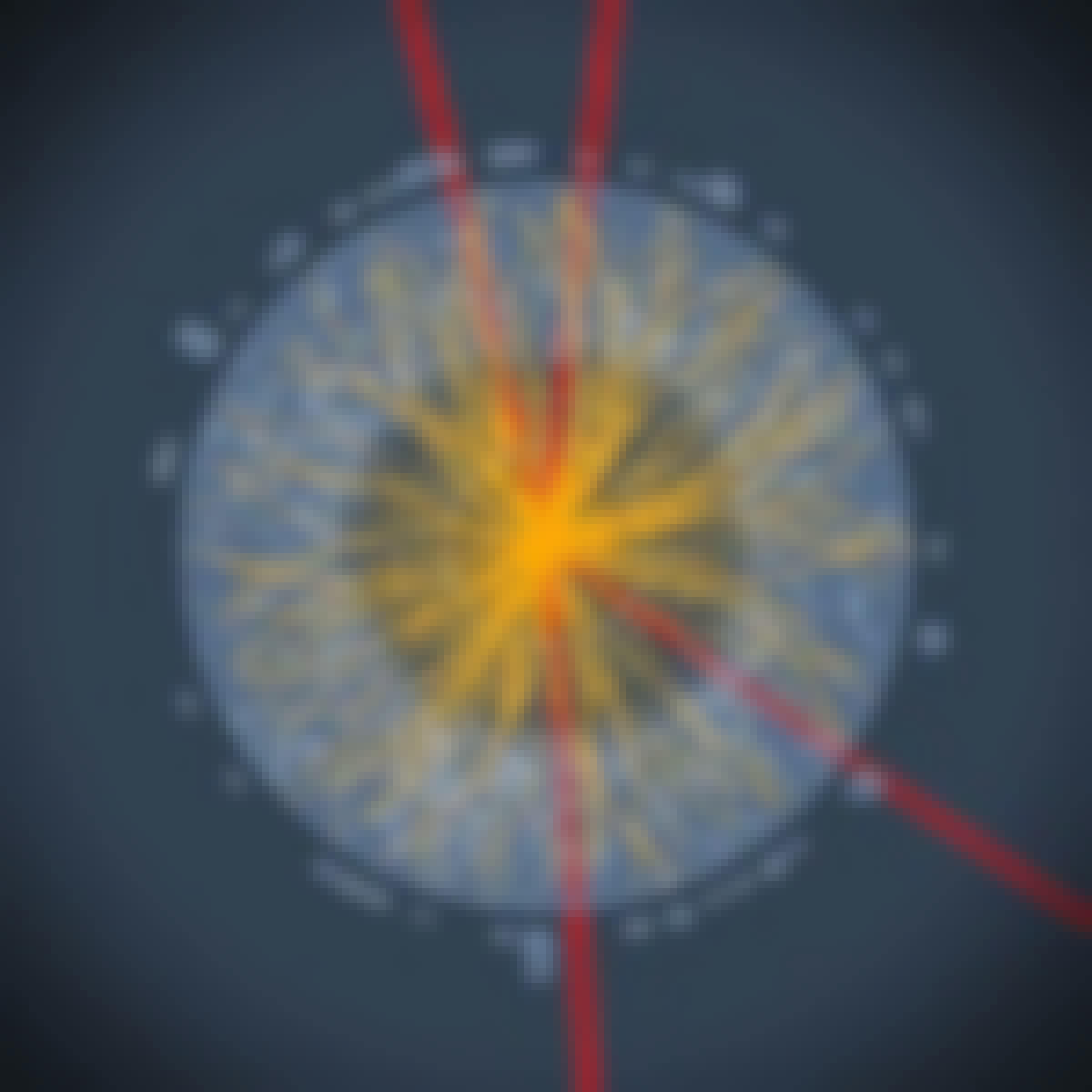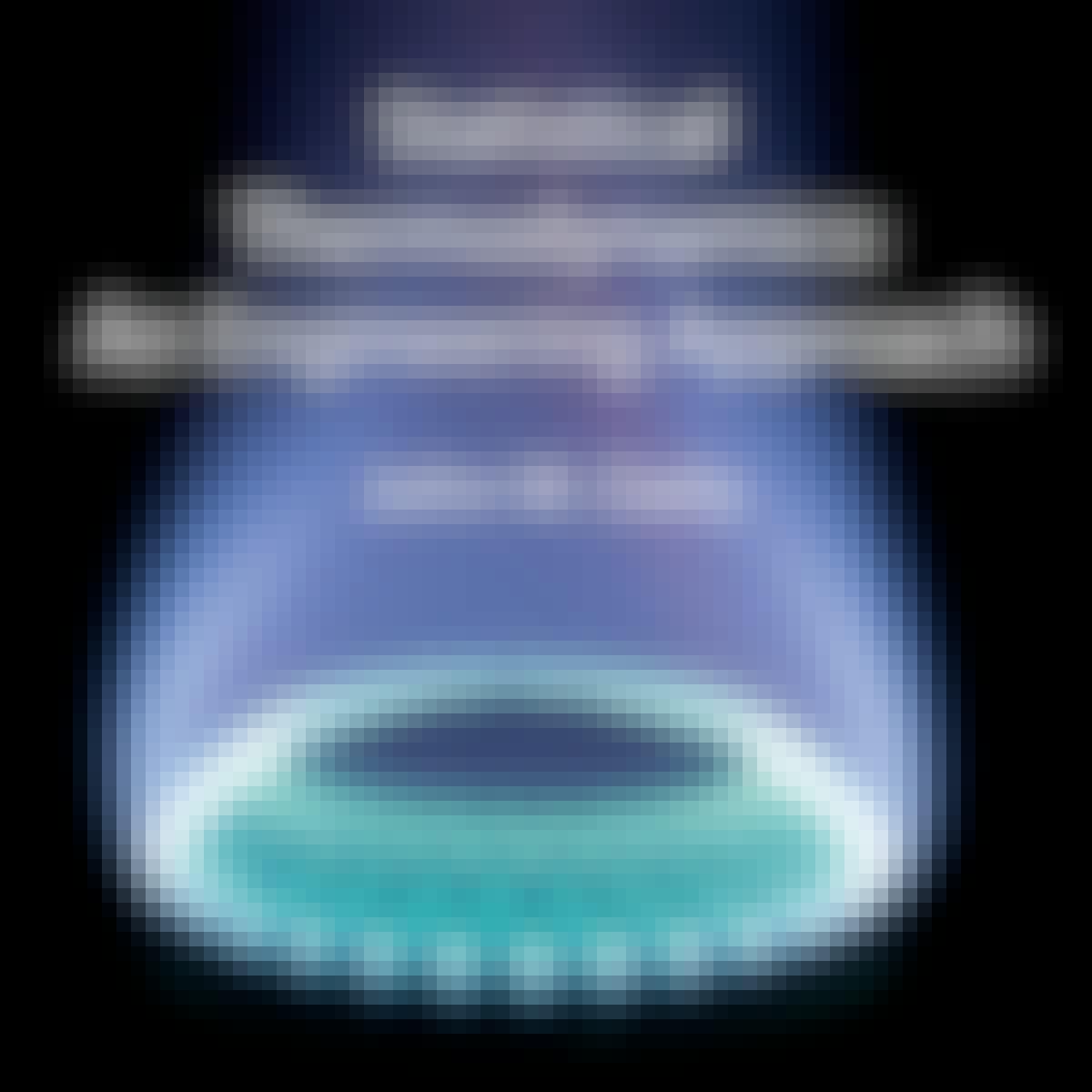Filter by
SubjectRequired
LanguageRequired
The language used throughout the course, in both instruction and assessments.
Learning ProductRequired
LevelRequired
DurationRequired
SkillsRequired
SubtitlesRequired
EducatorRequired
Explore the Astrophysics Course Catalog
 Status: Preview
Status: PreviewUniversity of Arizona
Skills you'll gain: Physics, Engineering, Scientific, and Technical Instruments, Ancient History, Chemistry, General Science and Research, Global Positioning Systems, Scientific Methods, Scientific Visualization, Research, Simulations
 Status: Preview
Status: PreviewCaltech
Skills you'll gain: Physical Science, Physics, General Science and Research, Mechanics, Spatial Analysis, Mathematical Modeling
 Status: NewStatus: Preview
Status: NewStatus: PreviewThe Hong Kong University of Science and Technology
Skills you'll gain: Physics, Advanced Mathematics, Differential Equations, Mechanics, Mathematical Modeling, Quantitative Research, Scientific Methods
 Status: Preview
Status: PreviewThe University of Tokyo
Skills you'll gain: Physics, Physical Science, General Science and Research, Materials science, Science and Research, Scientific Methods, Chemistry, Scientific Visualization
 Status: Free
Status: FreeUniversity of Alberta
Skills you'll gain: Physics, Storytelling, Scientific Methods, Science and Research, General Science and Research, Simulations, Scientific Visualization
 Status: Preview
Status: PreviewThe University of Edinburgh
Skills you'll gain: Physics, Physical Science, Science and Research, Engineering, Scientific, and Technical Instruments, Image Analysis, Data Storage, Computer Science, Data Analysis Software
What brings you to Coursera today?
 Status: Preview
Status: PreviewYale University
Skills you'll gain: Global Positioning Systems, Wireless Networks, General Networking, Communication Systems, Mechanics, Telecommunications, Technical Communication, Physics, Environmental Monitoring
 Status: Preview
Status: PreviewThe Hong Kong University of Science and Technology
Skills you'll gain: Physics, Calculus, Mechanics, Physical Science, Advanced Mathematics, Energy and Utilities, Mathematical Modeling
 Status: Free Trial
Status: Free TrialUniversity of Michigan
Skills you'll gain: Environmental Monitoring, Global Positioning Systems, Environmental Science, Physics, Mechanical Engineering, Environment, Physical Science, Climate Change Programs, Engineering Calculations, Geographic Information Systems, Scientific Methods, Manufacturing and Production, World History, Chemical Engineering, International Relations, Engineering Analysis, Electrical Power, Political Sciences, Emerging Technologies, Timelines
 Status: Preview
Status: PreviewUniversity of Geneva
Skills you'll gain: Physics, Laboratory Equipment, Physical Science, Radiation Protection, Science and Research, Experimentation, Research, Mathematical Modeling
 Status: Free Trial
Status: Free TrialUniversity of Colorado Boulder
Skills you'll gain: Chemical Engineering, Quantitative Research, Chemistry, Thermal Management, Mechanical Engineering, Engineering Calculations, Numerical Analysis, Engineering Analysis, Statistical Methods, Differential Equations, Physics, Engineering, Simulation and Simulation Software, Mechanics, Probability Distribution, Mathematical Modeling, Applied Mathematics, Materials science, Simulations, Physical Science
 Status: Preview
Status: PreviewThe University of Edinburgh
Skills you'll gain: Biology, Life Sciences, Environment, Environmental Science, Biochemistry, Microbiology, Research, Physical Science, Scientific Methods, Chemistry
Astrophysics learners also search
In summary, here are 10 of our most popular astrophysics courses
- Astronomy: Exploring Time and Space: University of Arizona
- The Evolving Universe: Caltech
- General Relativity II: Applications: The Hong Kong University of Science and Technology
- From the Big Bang to Dark Energy: The University of Tokyo
- Astro 101: Black Holes: University of Alberta
- AstroTech: The Science and Technology behind Astronomical Discovery: The University of Edinburgh
- Rocket Science for Everyone: Yale University
- Understanding Modern Physics I: Relativity and Cosmology: The Hong Kong University of Science and Technology
- Rocket Science 101: University of Michigan
- Particle Physics: an Introduction: University of Geneva










